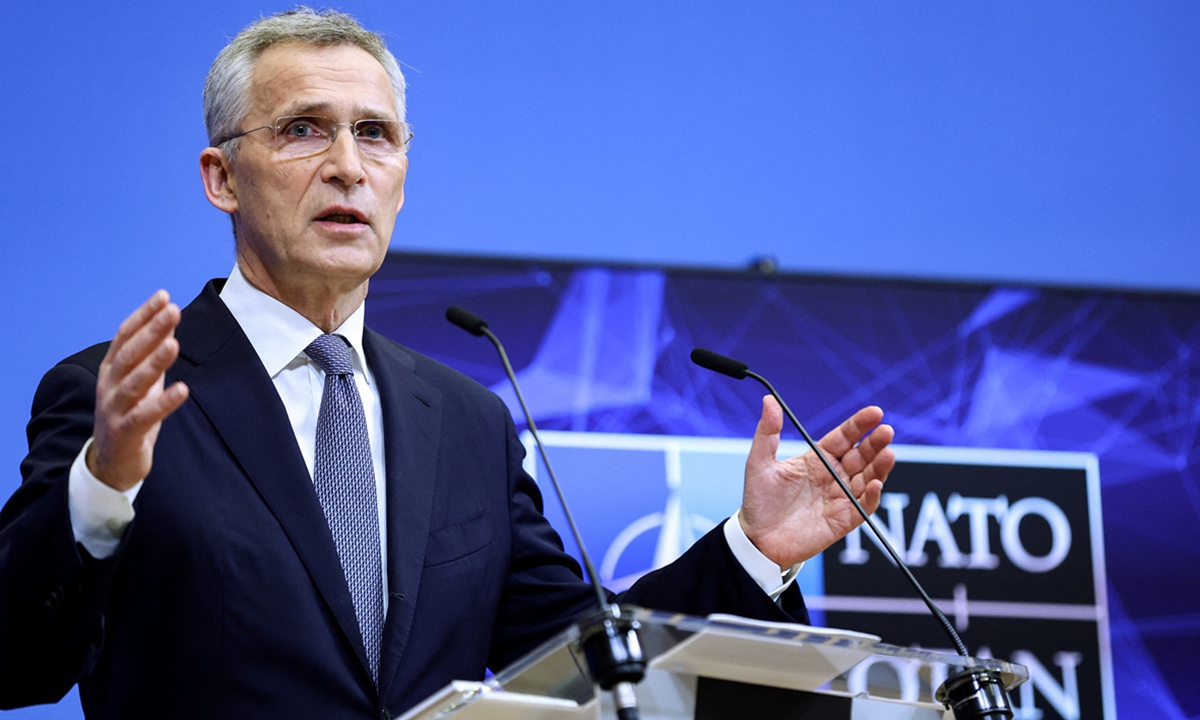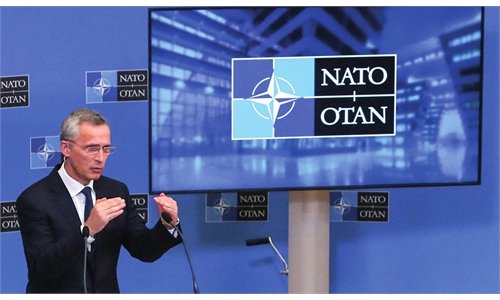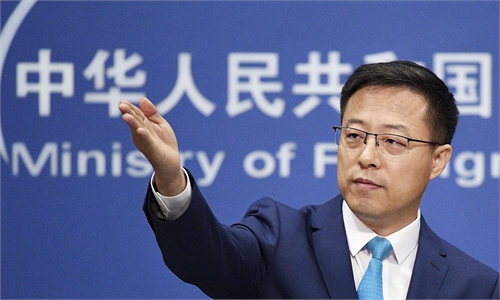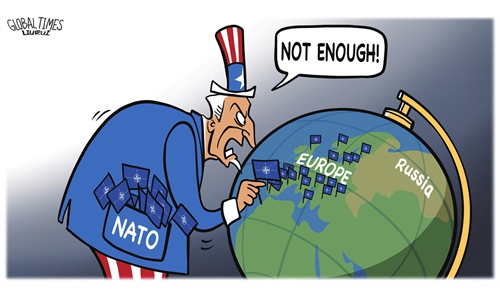
NATO Secretary General Jens Stoltenberg speaks during a press conference ahead of the alliance's Defence Ministers' meeting at the NATO headquarters in Brussels on March 15, 2022. Photo: AFP
In an interview with the German newspaper Welt am Sonntag, NATO Secretary General Jens Stoltenberg admitted that Western countries' military and financial support to Kiev are costing their societies dearly. "Rising food and energy bills mean hard times for many households in Europe," he said. However, European countries should continue to provide Kiev with military supplies despite the price, because "the best way to maintain peace is to support Ukraine," he continued.
Similarly, an article in the New York Times on Saturday, titled "US and NATO Scramble to Arm Ukraine and Refill Their Own Arsenals," cited a NATO official who said that in terms of providing weaponry to Ukraine, smaller countries have exhausted their potential, with 20 of its 30 members "pretty tapped out." But the remaining 10 can still provide more, he suggested, especially larger allies.
Despite in rhetoric, NATO keeping in step with the US toward supplying aid to Ukraine, NATO member states, especially those in Europe, are displaying signs of exhaustion. European countries are indeed the most affected by the Russia-Ukraine crisis, and they have paid a huge price for providing help to Ukraine, not only consuming their existing armaments, but also suffering from rocketing energy bills and decades-high inflation. In many European countries, public support for continuing aid to Ukraine is fragile. Judging from Europe's predicament today, it is hard for NATO's European members to sustain aid to Ukraine.
As for the US, which leads the bloc, in the aftermath of the midterm election, with the Republicans taking control of the House of Representatives, Washington's incentive in offering aid to Ukraine will be remarkably reduced.
"It is believed that NATO officials, Stoltenberg in particular, will soon encounter mounting piles of pressure. Even though he urged European countries to continue to provide supplies to Ukraine, judging from the actual situation of European countries, if they continue, it will be an unbearable burden for themselves. Such assistance is certainly not sustainable," Lü Xiang, an expert on US studies and a research fellow at the Chinese Academy of Social Sciences, told the Global Times.
Not only Ukraine, but also Europe will be facing a very difficult and challenging winter. Leaders of European countries do not want to see these problems persist as it will hold them back in gaining more support in elections.
As a result, NATO's sharp drop in aiding Ukraine is a likely scenario, with supplies keeping only at a symbolic level. Subsequently, NATO or European countries may start negotiations with Russia, in a bid to appease the crisis and make the people of Ukraine and Europe return to a relatively normal life, noted Lü.
The likeliness of peace negotiations with Russia depends on how NATO member states negotiate with the US. French President Emmanuel Macron may also discuss the issue with his US counterpart Joe Biden during his visit to the US this week.
As NATO is a military group dominated by Washington, the rhetoric of NATO officials actually represents more of Washington's interests. NATO officials' words in calling for European states to continue aid to Ukraine despite their difficulties may further widen the divide between the US and Europe.
The contradiction between the US and Europe has become prominent. European countries are disappointed with the US in selling energy to them at skyrocketing prices against the backdrop of the energy crisis. And Washington's Inflation Reduction Act has severely impaired Europe's interests.
Some politicians in Europe have already seen clearly that the US hopes to drag down Russia, weaken Europe, and strengthen the dependence of Europe on the US, so as to maintain its hegemony in Europe by taking advantage of the Ukraine crisis, which is actually sacrificing the interests of allies. This will trigger European countries to have a better understanding that the US is unreliable and will reduce the cohesion within the NATO.



